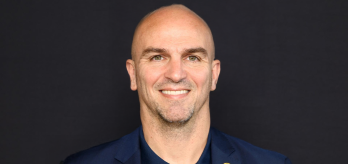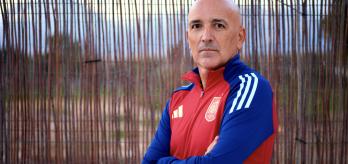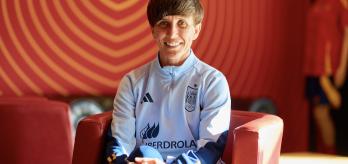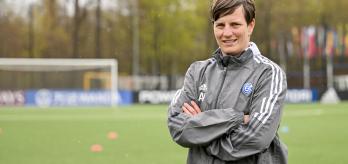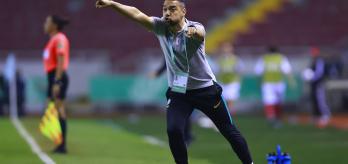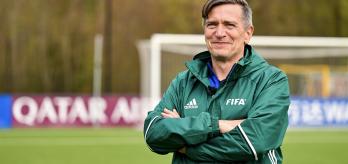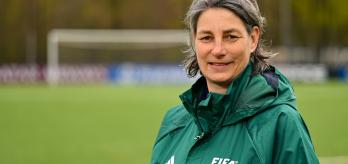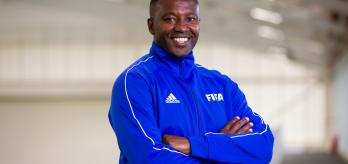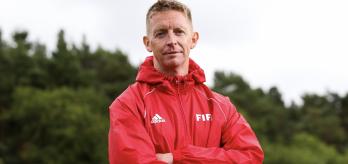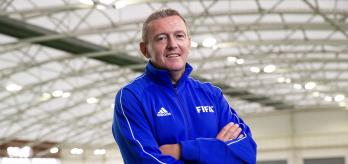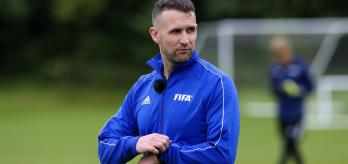00:11
Anne’s path into coaching
Anne Pochert is in her first year at Grasshopper Zürich after an 18-year association with FC Carl Zeiss Jena. She explains how she first got into coaching while studying Sports Science in Jena, and went on to coach at the club at every level from U9 to U17. Her career in eastern Germany culminated in a stint managing the women’s first team, guiding her young side into the Frauen-Bundesliga.
02:04
Making the move to Zürich
Pochert was immediately impressed by Grasshoppers’ facilities and attitude. For instance, its women’s side is fully integrated into the club’s training centre and has access to all the same facilities as the men’s team, which was not the case in Jena. Moreover, being part of one of Switzerland’s biggest and most successful clubs means the women’s team has a high profile, and makes it an attractive proposition for a coach.
03:13
A professional approach
About a third of the Grasshoppers squad are full-time professionals. Many of the rest work part-time or are still in education, but their incomes are topped up by the club to ensure they are able to commit to training as part of a professional outfit. Grasshoppers is committed to bringing young Swiss players from its youth academy into the first team, which makes it a particularly good fit for Pochert’s coaching expertise.
04:42
The working week
A typical week begins with post-game video analysis and gym sessions. The most intense day of training is a Tuesday, when there are two sessions scheduled to allow part-time players to attend. After a day off on Wednesday, attention shifts to preparation for the weekend’s game, with a tactical session on Thursday and final training on a Friday. After Saturday’s match, Sunday is set aside for recovery.
06:35
Focusing on ourselves
The Swiss league is structured around end-of-season play-offs, which start at the end of April. The results of the “regular” season only count towards playoff seedings, which reduces the pressure on coaches to win every game and encourages them to concentrate on unlocking the potential of their own squads. Pochert works in 3-week blocks, and while she certainly does not ignore the opposition in training, her focus is very much on implementing her own playing philosophy.
08:49
Taking the pressure off
Having cut her teeth coaching youth sides, Pochert feels it is important to focus on skills and allow players to learn from their mistakes; the Swiss league structure gives players more time to do that than they would have in Germany. This allows players to develop and show how much they have improved over the season.
10:49
Better players make better teams
Pochert emphasises the importance of developing individual players, and notes that there is not enough focus on this area in the women’s game. Her approach is based on the assumption that better players combine to make better teams, which is why she spends about half her time on position-specific and individual training. Players are also given their own tailored training plans alongside training with the squad, and this is already producing results on the pitch.
12:31
Building close relationships
Of course, working with senior professionals is different from working with youth players, but Pochert’s approach is fundamentally the same as it was at youth level. As a youth coach, it is part of your job to maintain a close relationship with your players and to look out for their welfare. Similarly, coaching professionals is about more than just shouting instructions – as Pochert and her staff are all too well aware.
Of course it’s a team sport, but at the end of the day, it’s played by eleven individuals. My view is that when you improve the individual players, you improve the team.














